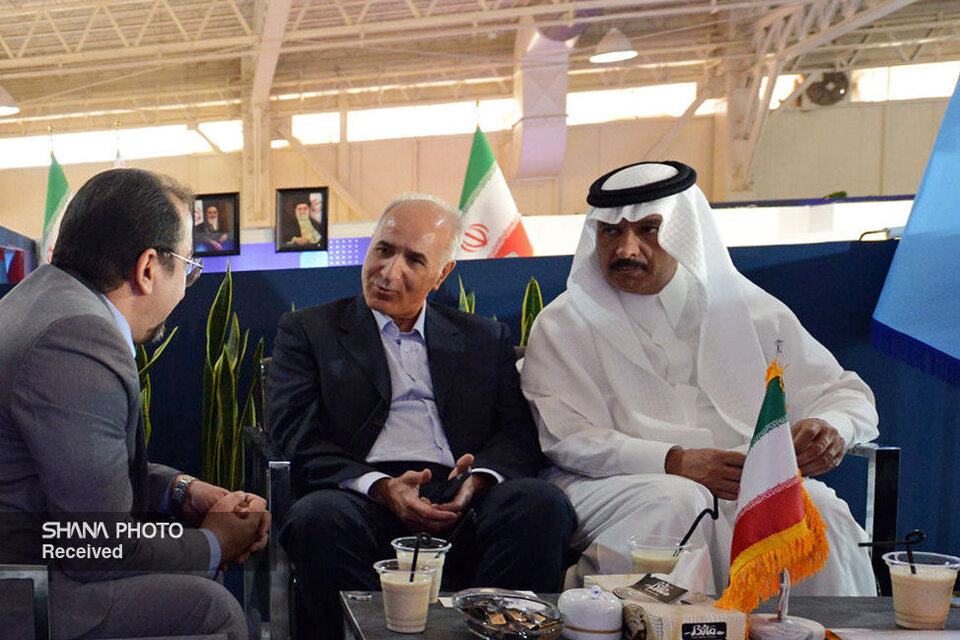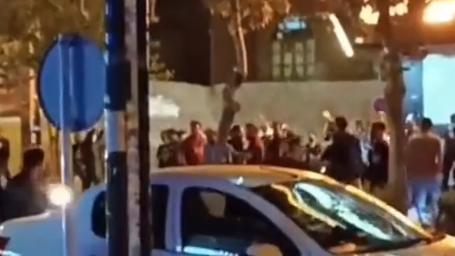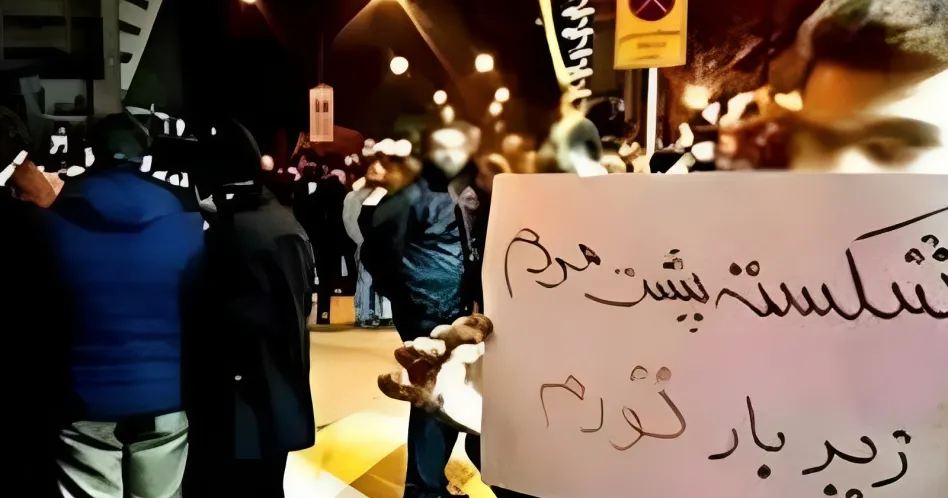
Chinese Leaders Are Sidestepping Iran
The editorial of Emrooz sheds light on the fact that Chinese leaders are making decisions that exclude Iran’s interests, while Tehran is left out of big international projects that are underway around it, particularly four important international corridors.
There are four important international corridors underway around Iran. In the past five years, transit routes in the Middle East have drastically changed; in the meantime, four new corridors have been identified and tens of billions of dollars have been invested in them and they will become operational within the next two years.
The corridor connecting China to Europe through the Caspian Sea in the north of Iran, the corridor linking India to Europe in the south of Iran, the corridor from Asia to Europe through Iraq to Turkey in the west of Iran, and the corridor from the Port of Gwadar in Pakistan to China in the east of Iran are among the most important corridors around Iran which will make the situation tough for Iran’s economy and trade.
What is important is that these corridors rely mainly on the leaders of the Shanghai Cooperation Organization and BRICS. It seems that in so far as the issues of sanctions against Iran and being blacklisted by FATF are not resolved, Iran will not be invited to join these corridors.
Inviting Iran to join regional groups can be considered as a step for guaranteeing the security of these corridors. It must be noted that not joining these projects will deprive Iran of many economic and trade benefits and advantages, and important decisions must be made so that Iran is not isolated and is invited to join other countries.
Iran must adapt itself to the world as soon as possible to take advantage of the opportunities ahead and gain better results in the field of the economy and trade. This is an important issue and must be addressed as soon as possible because any delay in this regard will have irreparable consequences for the country.
Iran’s Narrowing Options
The editorial of Arman Emrooz explains why Iran is running out of options because of changes in the regional and international domains.
Major developments are underway in Russia, China and India, while the Eurasian region is on the verge of a big change. Amid all these changes, it is not clear what will happen to Iran.
Iran, after decades of trying to alter the security dynamics of the region, is now under pressure to adapt to the existing conditions. It is not clear to what extent Tehran is ready to change its behavior, but what is clear is that it has to undergo changes, which will have consequences for the Middle East, the South Caucasus, Central Asia and South Asia.
This is exactly why Washington and Tehran have tried to reach an “unwritten agreement” based on which Tehran should stop providing drones and spare parts to Russia which are used in the Russia-Ukraine war. It is obvious that these talks have made progress and Tehran has asked Moscow not to use Iranian drones from now on.
But the United States has called for Iran taking “more decisive measures.” After that, Iran stopped stockpiling highly enriched uranium. These developments are taking place along with Tehran-Washington talks for releasing American prisoners and unfreezing $6 billion of Iran’s assets in South Korea. US officials have told their Iranian counterparts that if tensions de-escalate over the summer, it is possible to have more comprehensive negotiations later this year.
The more important issue is the regional situation: Saudi Arabia and the UAE have brought stability to the region which was disrupted during the Arab Spring. Iran is an important factor in this process.
Under these circumstances, Iran does not have enough capacity to directly confront the United States. Perhaps, if Russia and China can once again find their former positions and become problematic for the United States, Iran’s position might improve. But it seems that the current situation is going to continue for a long time.
A “Development Bank” Is Just a Futile Dream
The editorial of Jahan Sanat criticizes the government for trying to establish a new bank without having enough resources.
Unfortunately, Iranian politicians keep dreaming in different fields. Whenever a group of people get together — particularly in planning organizations — they want to do something that no one has ever done before, while thinking that their predecessors were not as mature as they are.
The dream is a plan for establishing the Development Bank of Iran. According to an Iranian news agency, the government seeks to create the Development Bank of the Islamic Republic of Iran before the end of the first year of the Seventh Development Plan.
The question is: how are the resources of this bank going to be provided? As implied in the abovementioned news, are Saderat Bank’s resources going to be transferred to this new bank? If so, what will happen to citizens’ deposits in Saderat Bank? To which economic activities will the provided resources be allocated? If this new bank is going to act like other existing development banks, what is the need for establishing a new one? Is the management of this bank going to be given to the government or the private sector or shareholders other than these two?
Iran’s problems, particularly in the field of economic development, are not going to be resolved by establishing a new bank. But the problem is: how is the capital outlay going to be provided? Government officials must stop making the situation more complicated.
Significant Role of Israel and Turkey in the Caucasus Against Iran
The editorial of Setareh Sobh reflects on the recent dispute between Iran and Azerbaijan.
One of the important problems in Iran’s foreign policy these days is the issue of the Azerbaijan Republic. Although Azerbaijani officials know very well that Iran will deal with the challenges created for it and these challenges will not weaken Iran, the pressure of Turkey and Israel on Azerbaijan increases day by day and this country must fulfill the duty delegated to it.
Today, there is no tension between Iran and Azerbaijan and both countries’ officials are interacting with each other. Difficulty between the two countries is limited to a longstanding dispute between Azerbaijan and Armenia over the Karabakh region.
Iran has taken a neutral position in this dispute and invited both neighbors to make peace, but Azerbaijan has used the allegation of support for Armenia as an excuse for putting pressure on Iran. Although Azerbaijan’s goals in Karabakh are not in line with Iran’s interests and its concerns over Azerbaijan’s measures are justified, Tehran has not taken any action to counter Azerbaijan’s measures, while trying to resolve the issue diplomatically.
What is delegated to Azerbaijan, namely implementing the plan for the “corridor of Zangezur,” is a part of an important geographical puzzle to isolate Iran in which Israel and Turkey play an important part.
The developments in recent years are related to a bigger project intending to geographically isolate and weaken Iran in the region. Although Iran considers this situation as a threat against itself, it is using diplomatic language in this regard. But the behavior of some of Azerbaijan’s officials and authorities has been reckless.
Azerbaijan is obtaining concessions from Turkey and Israel for creating tensions and challenges for Iran, but is also paying the price for it. The more the foreign pressures increase on Azerbaijan, the more it becomes clear that this government is a pawn in the hands of foreign powers.
In comparison with Iran, Azerbaijan is a small country whose officials might feel powerful by muscle flexing in front of Iran, but do not dare to take any measures against Iran. Although Azerbaijan has taken measures regarding Karabakh, diplomatic activities by the officials of both countries show that they are after finding a solution for this dispute. The Russia-Ukraine war has shown that the world and region cannot tolerate another conflict.

Saudi Arabia Ready to Expand Cooperation With Iran’s Petrochemical Industry

The Saudi ambassador to Iran emphasized the common ground for cooperation between the petrochemical industries of Iran and Saudi Arabia, urging that “we are ready to expand cooperation with the Iranian petrochemical industry.”
Ambassador Abdullah bin Saud al-Anzi visited the 17th International Exhibition of IranPlast to see the latest achievements of Iran’s petrochemical industry.
During his visit to the stand of the National Petrochemical Company, the Saudi ambassador talked with the managers of the company and pointed to the capabilities of Iran’s petrochemical industry, stating that there is a lot of common ground for cooperation between SABIC (Saudi Arabia’s Basic Industries Corporation) and petrochemical companies in Iran and “we hope that soon we will be witnessing visits and meetings between Iran and Saudi Arabia regarding the petrochemical industry.”
The Saudi ambassador stated that Iran has made considerable progress in the field of modern science and technology in the petrochemical industry and “we are interested in cooperation.”
The 17th International Exhibition of IranPlast commenced on Sunday September 18 and continued for four days, with the objective of bolstering national production.
New Round of Protests in Iran Amid Tightening Security on Mahsa Amini’s Death Anniversary

The Iranian people once again took to the streets on September 26 to protest against the government — this time, to commemorate the death anniversary of Mahsa Amini, a 22-year-old woman whose killing in custody triggered the Woman, Life, Freedom movement in Iran.
Despite the government’s attempts to preempt any protests on that day, a number of Iranian cities witnessed mass demonstrations with anti-establishment slogans such as, “Death to Khamenei, Damn Khomeini,” “All for Ousting the Dictator,” “Let’s Start Nationwide Protests and Strikes.”
Many streets in major cities were filled with police and security forces, newly installed security cameras were placed in public places accompanied by drone surveillance; it seemed as if the entire country was under a military coup.
As usual, security forces employed coercive measures to suppress the protests through using violence and arresting protesters. The total number of arrestees, ranging from families of victims of last year’s protests to actresses, civil activists and ordinary citizens, including a 15-year-old boy, is not clear. According to Shargh daily, at least 270 people were taken into custody in different cities excluding Tehran.
Tehran, Karaj, Gharchak, Esfahan, Tabriz, Gorgan, Zahedan, Bojnourd, Zanjan, Gheshm, Sanandaj, Saqez, Divandareh, Baneh, Marivan and Dehdasht were among the cities in which protests were staged.
Meanwhile, Amini’s parents who had invited people to join them at the cemetery for their daughter’s ceremony were placed under house arrest the entire day. A day before the anniversary, IRGC forces surrounded their house in the city of Saqez and blocked the road to the cemetery where Amini is buried. They also shot a 27-year-old man in the head who was in the vicinity of the cemetery.
Many universities, including Amir Kabir University in Tehran, published statements on Amini’s death anniversary, unequivocally condemning the government, “All we want to say is ‘No’ to the Islamic Republic and all its related institutions. And this is manifested in the slogan Woman, Life, Freedom.”
EU’s Grave Concern Over Iran Revoking IAEA Inspectors’ Permits

The EU has expressed serious concerns over the Iranian government’s decision to revoke the permits of a number of experienced IAEA inspectors who have been in charge of monitoring and verifying its nuclear program.
The EU’s Lead Spokesperson for External Affairs and Security Policy Peter Stano issued a statement urging Iran to reconsider its decision in this regard.
He underlined in the statement that revoking the IAEA inspector’s permits will have a direct and strong impact on this international organization’s capacity for verifying Iran’s nuclear activities, including its monitoring of the nuclear deal (JCPOA).
IAEA Director General Rafael Grossi announced on Saturday, September 16 that the Iranian government has revoked the permits of a number of experienced inspectors of this international organization.
Grossi strongly condemned Tehran’s measure in this regard, urging that these inspectors were previously involved in verifying Iran’s activities in its enrichment facilities that are under IAEA safeguards.
Hours after Grossi’s statement, the Iranian Foreign Ministry’s spokesperson confirmed the revocation of permits of a number of inspectors, stating that this was a measure taken by Tehran in reaction to the efforts made by the EU and the United States to ratify a resolution against Iran through the IAEA Board of Governors.
In recent days, the United States and the European parties to the JCPOA as well as EU countries condemned Tehran’s lack of cooperation with the IAEA, stating that if the Iranian government continues to not cooperate in this regard, the IAEA Board of Governors will pass a resolution against Iran.
In a letter, the European parties to the JCPOA told EU High Representative for Foreign Affairs Josep Borrell that they intend to keep in place the sanctions against Iran’s ballistic missile program which were supposed to be lifted in October in accordance with the JCPOA.
As for the reason for this decision, they cited the Iranian government’s lack of commitment to the provisions of the JCPOA which was signed in 2015.
Misery Index in Iran Increases to Over 60%

Statistics published by Iran’s Statistical Center show a rise in the “misery index” in many provinces of Iran at the end of spring reaching almost 70% in Lorestan Province.
The misery index is measured by comparing the unemployment rate to the inflation rate and the Statistical Center’s report indicates that this index increased by 1.7% in the months of spring compared to the same period last year.
According to this report, the misery index in the entire country was 60.4% in spring this year, showing a 1.2% increase compared to the winter.
Lorestan recorded the highest rate among all the provinces of Iran at 69.5%. Furthermore, Iran’s Statistical Center announced that the annual rate of inflation in this province is 57.1% — one of the highest among the 31 provinces in the country.
Economic experts in Iran have stressed that the misery index can measure the inflationary recession in an economy, urging that the significance of measuring this index is that its increase is directly related to the level of crime and even suicide.
High levels of inflation and unemployment have resulted in an increase in the misery index — in addition to the rise in the poverty line, the drop in the value of the national currency and the decrease in people’s purchasing power — revealing how difficult people’s lives have become in the different provinces of Iran.
Iran Produces 3 Million Barrels of Crude Oil per Day, OPEC Monthly Report

The Organization of the Petroleum Exporting Countries (OPEC) stated in its monthly report that Iran’s daily production of oil reached 3 million barrels per day (bpd) in August.
According to this report, Iran’s daily oil production increased by 143,000 bpd last month.
Last year, Iran’s average oil production was less than 2.5 million bpd.
According to the archive of OPEC monthly statistics, last month’s production of crude oil by Iran was the highest since November 2018, but it is still 820,000 barrels less than the period before the US sanctions.
A large part of growth in Iran’s crude oil production is because of the significant leap in exporting oil to China.
Based on Kpler’s statistics, average exports of Iran’s crude oil and gas condensate reached 1.24 million bpd in the first 8 months of this year, showing an increase of 405,000 barrels compared to the same period last year.
92% of exports have gone to China and the rest to Venezuela and Syria. But notwithstanding the significant leap in oil exports, Iran’s oil revenue has not had any significant growth, and the Head of the Budget and Planning Organization Davood Manzoor recently announced that only half of the oil revenue forecasted in the budget has been realized so far.
After the Western countries’ sanctions imposed on Russia last year, Iran had to give a steeper discount to Chinese oil refineries in competition with Russia.
According to OPEC’s monthly report, Saudi Arabia continues to voluntarily decrease oil production which has resulted in the increase in the global oil price. OPEC has predicted that demand for OPEC oil next year will reach 30 million bpd.
